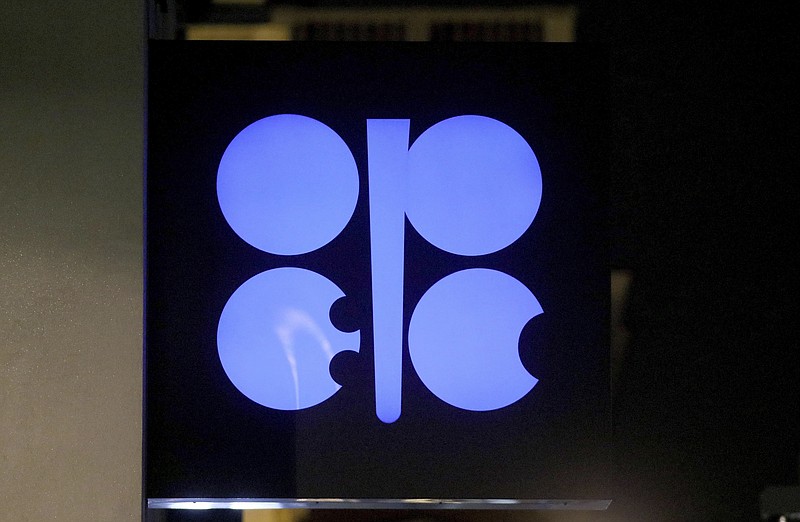Informal talks among OPEC ministers continued by phone Tuesday after the cartel shifted its final meeting by two days to Thursday to allow for more time to reach a deal on oil production policy.
Friction between Saudi Arabia and the United Arab Emirates prevented what was widely expected to be a routine agreement among members of the Organization of Petroleum Exporting Countries to delay an output increase scheduled for January.
With cracks appearing in the alliance, Saudi Energy Minister Prince Abdulaziz bin Salman signaled his dissatisfaction by threatening Monday to resign as co-chairman of a committee that oversees the output deal. The eroding unity among the group comes at a time when the market may struggle to absorb more barrels, with demand still weak because of the pandemic.
Members adjourned a videoconference after Monday's deliberations ended without an agreement. They also put off from Tuesday to Thursday a meeting with non-OPEC oil producers like Russia, which have been coordinating their actions with the cartel in recent years to increase their influence.
Oil producing countries are in a difficult situation. The pandemic has sapped demand for fuel across the economy, which induced those countries to cut back production this year to keep prices from sagging even more than they have. Yet the lower production means less revenue for governments that depend on oil sales to fill state coffers.
And the outlook for demand is mixed across the globe. Economies in the U.S. and Europe have been disrupted by a second surge in coronavirus infections, while activity and travel in China have rebounded more strongly.
The sag in demand has been reflected in lower prices to consumers for auto fuel in the U.S. Gasoline prices at the pump dipped well below $2 per gallon in many parts of the country in May as the pandemic took hold, and have remained flat after a mild rebound. The U.S. average was $2.12 as of Nov. 30, down 45 cents from the same week a year earlier but little changed from this summer, according to the U.S. Energy Information Agency.
Analysts at UniCredit bank said the oil producing countries were likely to agree to extend this year's production cuts of about 7.7 million barrels a day.
"In our view, the delay should not be a concern and we still expect the current curbs to be extended into the first quarter of 2021," they said, adding that it is not unusual for OPEC meetings to last longer than scheduled and virtual discussions slow the negotiation process.
"Moreover, both Saudi Arabia and Russia -- the two leaders of the group -- favor an extension of the cuts and this should be enough to square the circle and finalize the deal on Thursday." Saudi Arabia tends to take a leadership role within OPEC, while Russia is the biggest non-OPEC country to coordinate with the cartel.
Information for this article was contributed by David McHugh of The Associated Press and Andres Guerra Luz and Alex Longley of Bloomberg News.
